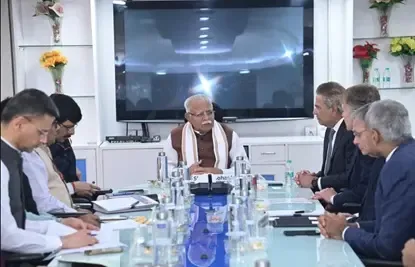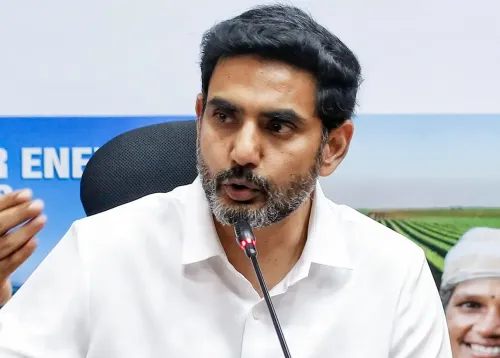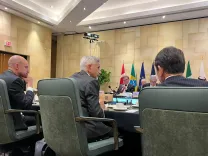Does Tata Motors’ demerger signify a new era of independence for its CV and PV divisions?

Synopsis
Key Takeaways
- Tata Motors has officially separated its CV and PV divisions.
- This strategic move allows both sectors to focus on independent growth.
- The idea was originally proposed in 2017-18 but delayed due to Covid-19.
- Shares of TMCV saw a 28% increase on debut.
- Tata Motors plans a significant acquisition of Iveco Group.
New Delhi, Nov 12 (NationPress) Tata Sons Chairman N Chandrasekaran stated on Wednesday that the separation of Tata Motors’ commercial and passenger vehicle sectors signifies a pivotal moment, enabling both divisions to embark on independent growth trajectories after extensive financial interdependence.
During the listing ceremony for the commercial vehicle division, Chandrasekaran remarked that Tata Motors Passenger Vehicles (TMPV) has consistently benefited from the performance of Tata Motors Commercial Vehicles (TMCV).
He emphasized that the cash flows generated by commercial vehicles had previously supported the capital expenditures of the passenger vehicle segment.
This demerger was crucial to ensure that both businesses are “fit” and “directionally robust,” he added.
The concept of separating the two divisions was initially proposed in 2017–18, but was postponed due to the Covid-19 pandemic. The initiative was later revitalized and gained traction over the last couple of years, resulting in the official demerger earlier this year.
Chandrasekaran observed that TMCV has consistently posted profits, while TMPV has encountered financial difficulties in the past. “It became evident to me 8–9 years back that this company needed a distinct path. The company had to be prepared before the split,” he stated.
The shares of Tata Motors’ commercial vehicle segment made a notable entrance on the stock market on Wednesday, debuting at Rs 335 per share on the NSE, reflecting a 28 percent increase from the discovered price of Rs 260.75.
After the split, the commercial vehicle entity retained the Tata Motors name (TML), while the passenger vehicle division was rebranded as Tata Motors Passenger Vehicles Ltd (TMPVL).
TMPV, already listed, holds a stake in Jaguar Land Rover (JLR) and encompasses Tata Motors' electric and passenger vehicle operations.
In July 2025, Tata Motors announced its plan to invest 3.8 billion euros to acquire the Italian commercial vehicle leader Iveco Group. This would represent the company’s largest acquisition to date and the second-largest in the history of the Tata Group. The agreement is expected to finalize in the coming months.









